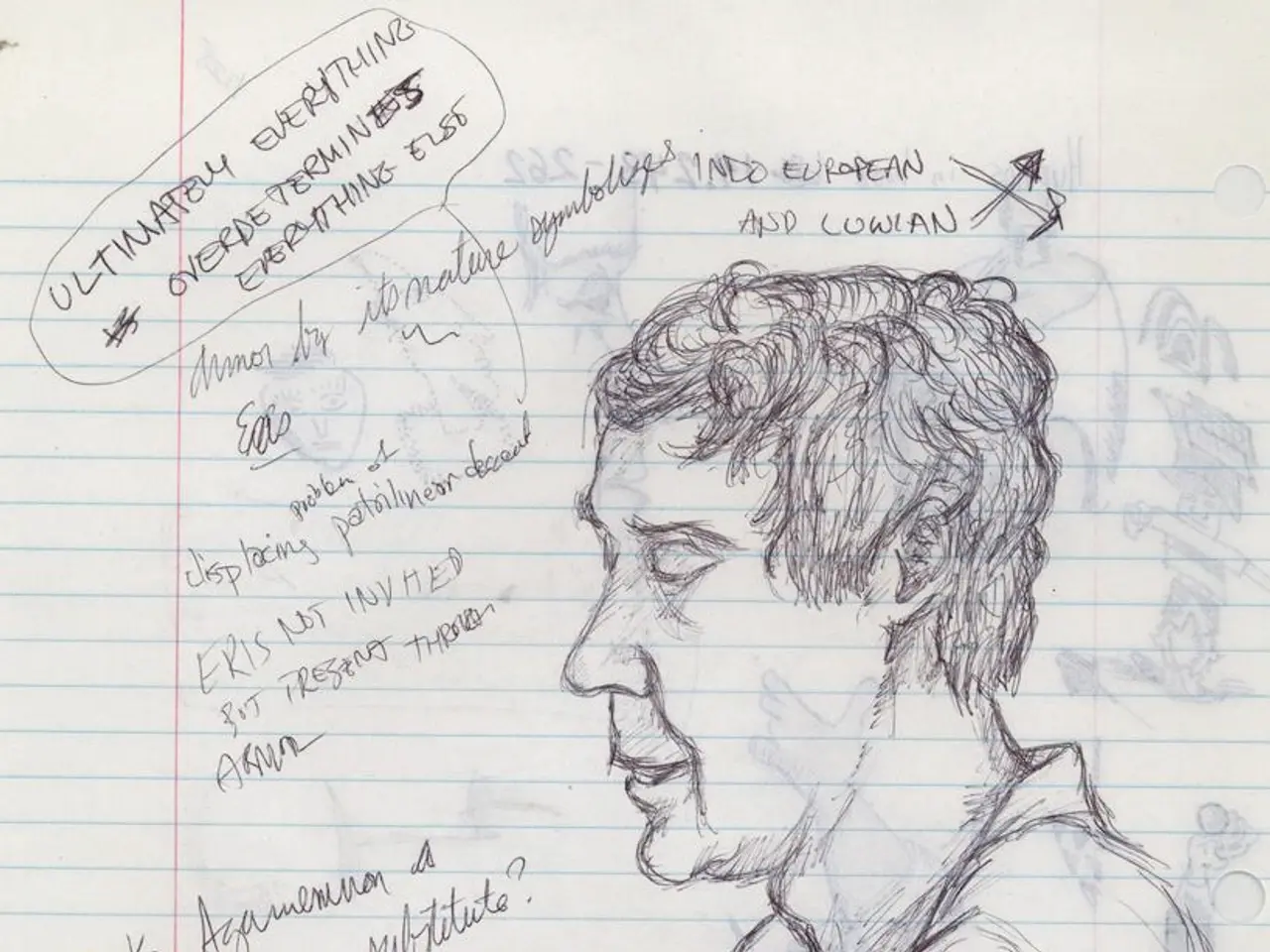Discussion on Milton Friedman's Legacy, featuring insights from Jennifer Burns and another author
Milton Friedman's Enduring Impact on Economics and Policy
Milton Friedman, a renowned economist who spent much of his career at the University of Chicago, made significant contributions to the field of economics that continue to influence policy debates today.
One of Friedman's most notable achievements was the development of monetarism, a school of thought emphasising the central role of the money supply in driving inflation and economic activity. He argued that inflation results from excessive money supply growth and advocated for a steady, controlled expansion of money to avoid inflation, likening the effects of money injections to "dropping money out of a helicopter."
Friedman's work on monetarism also led him to diagnose the Federal Reserve's errors during the Great Depression, a period he termed "The Great Contraction." Along with Anna Schwartz, he documented this in their landmark book "A Monetary History of the United States, 1867–1960," showing the crucial role of money supply policy in economic downturns. This work made him a founder of monetarism and revolutionised our understanding of the Great Depression.
Another key contribution from Friedman was his revision of the Phillips curve, a relationship between inflation and unemployment. He and Edmund Phelps argued that any unemployment reduction from inflation was temporary because workers eventually adjust their expectations, returning unemployment to its "natural rate"—the level determined by labor market fundamentals. Friedman posited that sustained unemployment below this natural rate would require accelerating inflation. His analysis anticipated the stagflation of the 1970s—a combination of high inflation and stagnant economic growth—and helped end Keynesian dominance in macroeconomics.
Regarding economic policy, Friedman was a proponent of limited government intervention and favoured rules-based policies rather than discretionary fiscal or monetary actions. He called for strict limits on government spending growth and monetary expansion to avoid distortions, and was critical of the central bank’s broad regulatory ambitions. He also supported floating exchange rates to reduce economic problems caused by fixed rates.
Friedman's insights have been applied from the 2008 financial crisis to the COVID-19 pandemic by Fed chairs, making his views on monetary policy influential in handling financial crises. His work fundamentally changed how we think about money, markets, and the role of government in economic life.
In recognition of his contributions, Friedman was awarded the Nobel Prize in Economics in 1976. He is considered one of the most influential economists in history, and "A Monetary History of the United States" remains a seminal work in economic literature. The stagflation of the 1970s served to cement Friedman's influence on economic policy, as his predictions about the interplay between inflation and unemployment were vindicated during this period.
In conclusion, Friedman's foundational contributions include: 1) monetarism and its emphasis on money supply control; 2) diagnosing Federal Reserve errors as causal in deepening the Great Depression; 3) theoretically and empirically revising the Phillips curve and predicting stagflation; and 4) advocating for rule-based economic policies limiting government and central bank discretion. These insights have profoundly reshaped modern macroeconomics and policy debates.
- Milton Friedman's work, such as his development of monetarism and revision of the Phillips curve, have had a lasting impact on business and finance, offering valuable theories and practices applicable to various economic situations.
- Apart from economic policy, Friedman's influence extends to education and self-development, as his seminal works like "A Monetary History of the United States" serve as crucial resources for students and professionals seeking to understand economic theories and transform their personal knowledge in this field.




